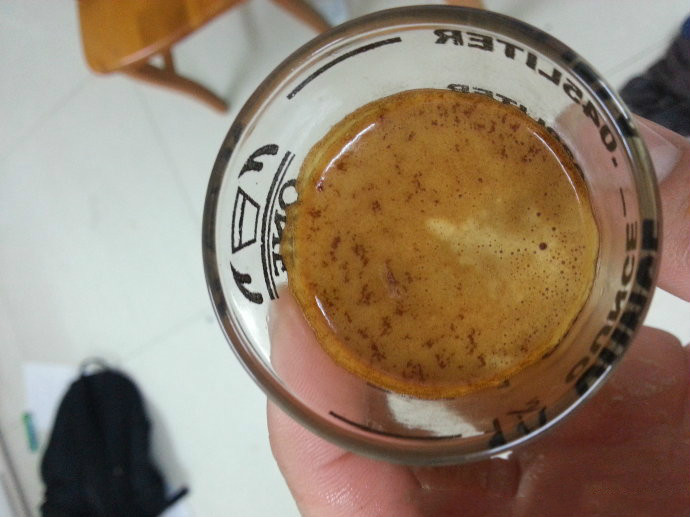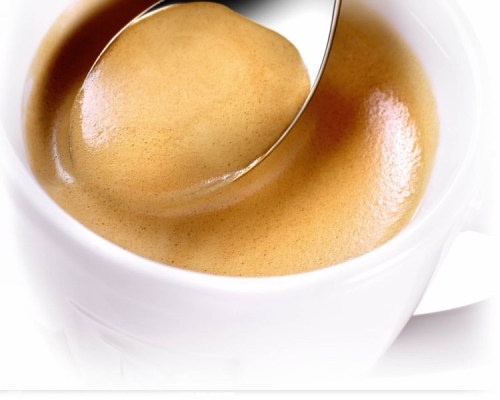Judging by coffee taste, coffee extraction and coffee quality typical flavor characteristics of coffee with over-extraction
Extraction is probably the most important aspect of coffee brewing, but one that baristas really understand the least. Extraction is everything. Without extraction, you can't even taste a cup of coffee.
Coffee extraction is the simplest but not 100% exact definition: coffee extraction is the process by which water dissolves the substances in coffee powder.
It seems easy to summarize, but it is not so simple to understand and apply.
When coffee powder is mixed with water, many changes occur. Water dissolves many of the flavor substances in coffee, and these dissolved flavor substances almost constitute all the taste sensations of a cup of coffee. The rest of the coffee is made up of insoluble substances, mainly very, very fine coffee powder, which affects the taste of coffee. But these insoluble substances cannot be counted as part of the extraction because they are only suspended in water.
About 28%(by weight) of coffee beans are soluble in water. This means you can extract up to 28% of the coffee's flavor by weight, with the rest being essentially cellulose and other plant components that make up the coffee bean.
Water is very good at dissolving these soluble chemicals, but it also needs some help. To help the water, you need to increase the surface area of the coffee beans, opening up "pathways" so that the water can more easily carry out flavor substances. This can easily be done with a bean grinder, which grinds coffee beans so that their surface area is multiplied to make the water work better.
Ideally, coffee beans are ground into very fine coffee particles and water is brought into contact to dissolve all the wonderful flavor compounds. Unfortunately, the result is often a cup of bitter, bad coffee. This is because not all flavor substances in coffee are good, and it is necessary to control the amount of flavor substances extracted to obtain a cup of "delicious" coffee.
It is impossible to avoid the unpleasant taste of over-extraction by increasing the amount of powder and extracting only the first part. Coffee that's not extracted enough tastes just as bad.
Many people understand extraction as a two-way highway connecting over-extraction and under-extraction. Always try to keep coffee extraction in the middle of the road and avoid over-or under-extraction.
Under-extracted Coffee
Underextraction is when not enough flavor substances are dissolved from the coffee powder, and there are still a lot of substances that are not extracted, which could have neutralized the bad flavor substances.
Think back to a time when you've had an Espresso with a short extraction life, such as a Ristretto made with the popular espresso beans. It has a pungent acidity, a lack of sweetness, an oddly salty taste and a disappointing short aftertaste--four characteristics that are the most obvious signs of insufficient extraction.
sour (sourness)
Sourness is a subtle presence, especially when we are always looking for good acidity in coffee. A lot of people ask,"Aren't sourness and acidity the same thing?" This is a reasonable question, because in many languages "sourness" and "acidity" are the same word "acid." As you can imagine, this situation can be somewhat inconvenient for multilingual cupping.
For the sake of distinction, sourness is usually defined as negative. Sourness is a very rapid and intense sensation. It causes a rapid physical reaction. Your lips will curl up, and there will be a strong, sharp sensation on both sides of your tongue. Sourness is an unpleasant bad taste sensation.
Whenever acid is discussed, it can be good or bad. Rather, it is a flavor category that contains both positive and negative attributes. For example,"That coffee's acidity is delightful" and "That coffee's acidity is very sour" both make sense to me. Acid contains sour/juicy/bright/tart, etc.
Lacking Sweetness
One of the most important aspects of coffee flavor is its sweetness. Sweet is profound. Have you ever heard someone complain that "this espresso is too sweet"? You can think about it. Insufficient extraction is not sweet, and far from it. Insufficient extraction always leaves something empty that you can't satisfy, and after a drink you feel "not enough." One advantage of the lack of sweetness is that it makes sourness more apparent, making it easier to identify the lack of extraction.
Salty
Many people may not agree with this view, but under-extracted coffee is salty. This saltiness is not the "sorry I accidentally put salt" saltiness, under-extracted coffee always brings a salty touch/taste. From an oral tactile point of view, this salty and alkaline solvent will bring a similar slippery feeling. (Don't try drinking ammonia just to prove it.) Just trust me.)
Quick Finish
The aftertaste of a properly extracted cup of coffee lasts for minutes (or even hours, if you're lucky). This aftertaste is just like eating a piece of brown sugar, or just eating a piece of toffee, very delicious!
A cup of under-extracted coffee does not provide these aftertastes. When you swallow, everything disappears and you don't feel much of a pleasant aftertaste. After drinking coffee, such a sudden stop, the experience is not so delicious.
There are other flavor profiles that suggest under-extraction, but these four are the most significant. When you taste these four flavors, you can be sure that your coffee is under-extracted.
Over-extracted Coffee
Excessive extraction is when too much soluble flavor is dissolved. This state of extraction can bring some bad flavor.
Think back to the Espresso made from the roasted coffee beans of the current trendy boutique coffee, which takes 40-50 seconds to extract. Espresso is bitter, dry, and hollow--the three flavors that are most characteristic of over-extraction.
Bitter (Bitter)
Everyone knows coffee is bitter. Over-extracted coffee is extremely bitter. Unless you're drinking Campari, you really don't want to taste that much bitterness. The bitterness in coffee is mainly due to caffeine, but many other chemicals also affect bitterness. The chemistry of the deep-baked beans has entered the destructive distillation stage and will contain more bitter chemicals.
Dry (dry)
Dryness in coffee is extremely bad because dryness is a very strong feeling and lasts for a long time. This sensation, also known as astringency, can be experienced in unsweetened black tea, short-aged red wine or overaged white wine. In wine, astringency is mainly composed of polyphenols (widely found in plants, seeds and bark). Similar chemicals are present in coffee and cause astringency.
Polyphenols are bitter and bind to proteins in saliva, which colloquially reduces the lubricity of the tongue and creates a rough, dry sensation in your mouth (this should not be associated with wine's "crisp" and "dry"-words that mean bright acidity and low sweetness in wine, not taste).
Hollow and Empty
Over-extracted coffee tastes empty and lifeless, as if you've squeezed everything out and destroyed everything in the process.
Properly extracted coffee will fill your mouth with a thick feel, it is delicious, smooth, and more importantly, it is rich. Under-extracted coffee is hollow, bland, coarse, unpalatable, and so lacking in flavor and character (not specifically flavor).
These are the typical flavor characteristics of over-extracted coffee. Of course, these are not the only flavor characteristics of over-extracted coffee, but these are the easiest to recognize. Know these, and you should be able to recognize them immediately when you drink a cup of over-extracted coffee!

Important Notice :
前街咖啡 FrontStreet Coffee has moved to new addredd:
FrontStreet Coffee Address: 315,Donghua East Road,GuangZhou
Tel:020 38364473
- Prev

Espresso understand how espresso and controlling crema make espresso crema better
Knowing more about crema can not only improve the ability of baristas to make coffee, but also help to improve the method of making espresso, so that guests who come to cafes can fully experience the charm of a perfect cup of coffee. Today, follow the Chongqing Barista barista barista training teachers into the espresso crema, in-depth understanding and control of espresso crema, promotion
- Next

Learn the right way to drink coffee, coffee cups, coffee plates, a set of coffee spoons, coffee pots, sugar and cream cans
How to serve coffee: the dinner coffee should be served in a small coffee cup with a coffee plate under it and a small coffee spoon attached to the well. The host should inform the waiter in advance to serve coffee in the dining room or in another room. If you drink coffee in the dining room, the host or waiter should pour the coffee and put the coffee cup with the plate on the right side of the table of the guest seat, and the spoon on the right end of the plate. Pour or deliver coffee should be like pouring
Related
- What documents do you need to go through to open a coffee shop? coffee shop coffee shop certificate processing process
- How to purchase Coffee beans in small Cafe how to choose a suitable supplier for domestic Coffee supply Company
- How to drink Starbucks Fragrance White Coffee? how to make Australian White Coffee? what Italian coffee beans are recommended?
- The Story of Flora Coffee: the name of Flora Coffee Bean and the implication of the Flowers on Florna Coffee
- How much does a cup of coffee cost? How much is the profit of a cup of coffee? What is the profit of the coffee shop in a year?
- Yunnan small Coffee, known as "fragrant Coffee", introduces the characteristics of Alpine Arabica Coffee producing areas in Yunnan, China
- 2023 latest Starbucks full menu price list how much is a cup of Starbucks coffee what is better to drink the most popular hot and cold drinks recommended
- Starbucks different kinds of Coffee Price list Starbucks menu 2023 Top Ten Best drinks in Starbucks
- Starbucks Spring praise Comprehensive matching Coffee Bean theme Story Packaging implication and taste description
- The cost of a cup of coffee latte American coffee cost price and selling price

